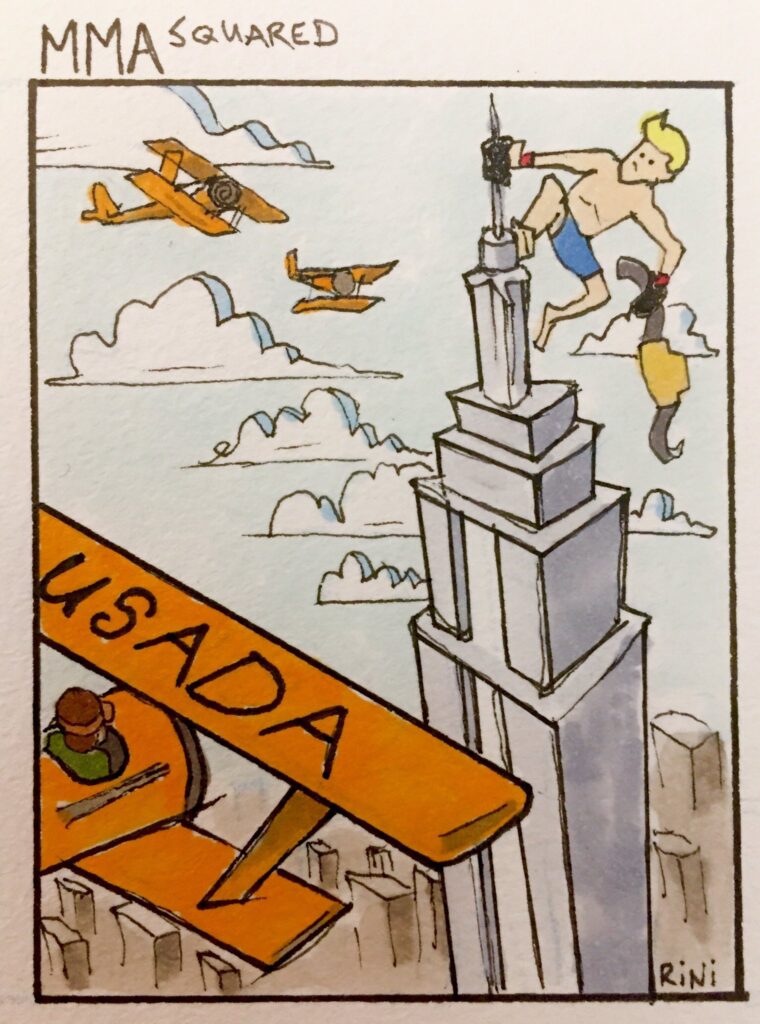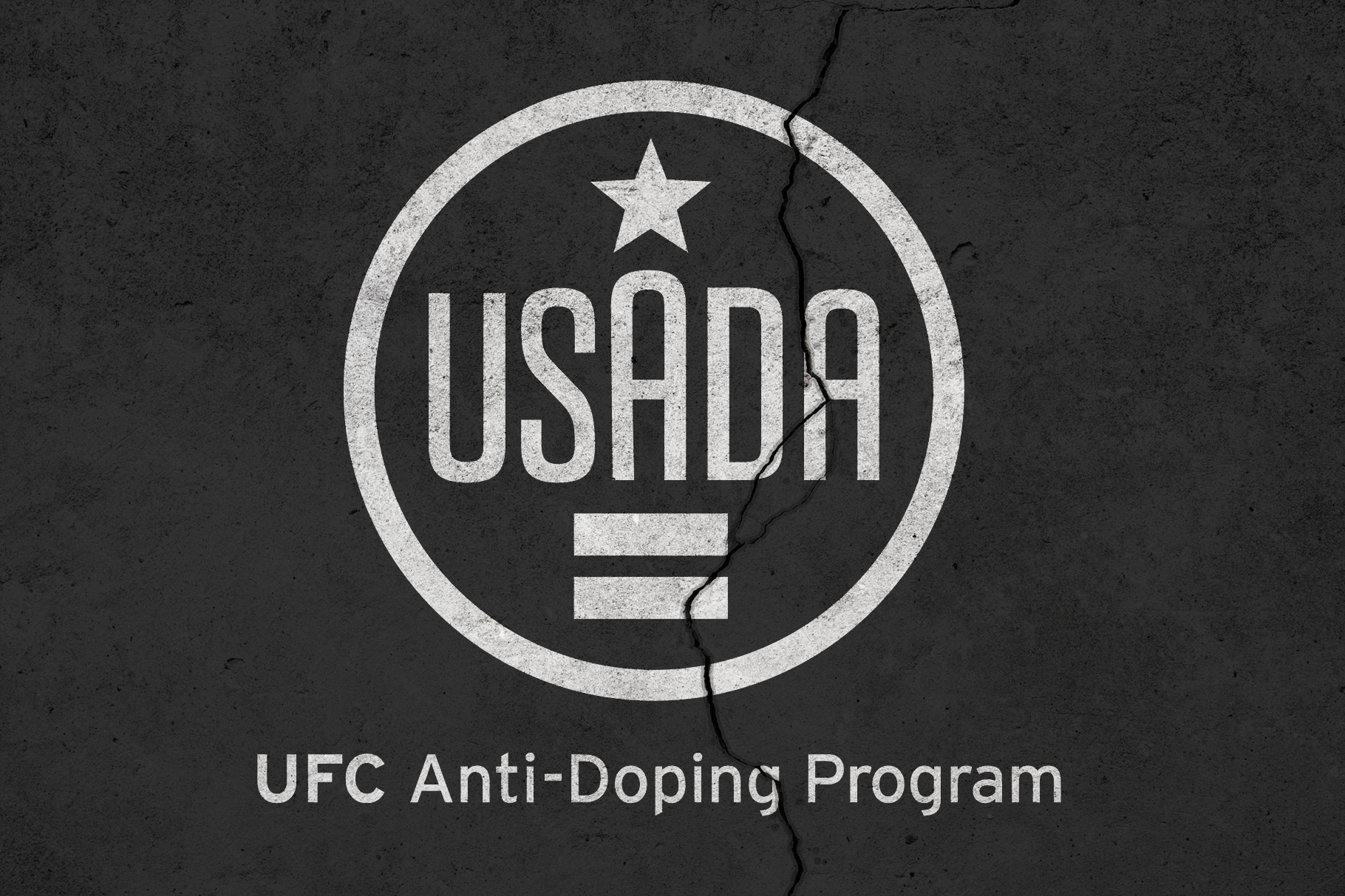Jump to
This last week saw a shockwave sent through the MMA ecosystem. After nearly 8-years of cooperation, the UFC and USADA announced the upcoming end of their business partnership. From there, things got pretty nasty.
A brief background
For those that don’t know, the whole circus kicked off when the drug testing agency sent out a press release essentially stating that, while Conor McGregor had re-entered the testing pool, the months long saga of his potential return had worn away the working relationship between the two companies. USADA especially cited comments made by UFC commentator Joe Rogan, which they felt reflected the general attitude of UFC brass.
“I really think [the UFC] should do all that in-house,” Rogan said on a recent podcast, speaking of the UFC’s drug testing program. “’Cause USADA does stuff like—well they don’t do it anymore—but they were doing stuff like waking guys up at 6:30 in the morning like the day of the weigh-ins and testing them. It was ****ing insane, for world title fights, ****ing insane.”
Shortly after USADA’s press release, it was revealed—both by company CEO Travis Tygart, and later by UFC officials—that the UFC had in fact decided to sever the relationship themselves in a recent conference call, citing a desire to (as Rogan suggested) run a program more selectively attuned to their needs. In the days since, there’s been some name calling, some finger pointing, and just a general feeling of a long-strained relationship suddenly snapping in a very public way.
The only real question is: How did it last so long?
The UFC has proven itself to be, more than anything else, a very reactionary company over the years. When COVID-19 hit they scampered away from regulation for as long as possible, until forced by law (and Disney executives) to stop hosting events. From there they publicly touted the tightest protocols in the business, but dropped them all the moment restrictions relaxed. As long as there was a legal need, they made it happen, once the oversight was gone, so was the action.
The UFC’s kneejerk history
More recently, following the Russian invasion of Ukraine, the promotion made the kneejerk call to ban flags from fighter walkouts. Right up until last week, when Dana White made a big show of bringing flags back at the expense of all those (imaginary) crybabies who couldn’t handle them in the first place. I’d love to know what drove either decision, because it wasn’t public outcry.
Going back in time, fans can remember the testosterone replacement therapy (TRT) era, when fighters were battling for the right to essentially legalize doping through doctor’s notes. With the UFC looking to polish up its image for a future sale, and the NSAC eventually putting it’s foot down on therapeutic use exemptions (TUEs), the promotion needed to make a big statement. So they brought in hardline drug testing for all athletes; they brought in USADA.
The thing with USADA, unlike the UFC’s other moves over the years, is that they very much acted as a business partner with the UFC and not just a subordinate brand that was happy to be there—or a series of regulations the UFC could handle all on their own. This wasn’t the Reebok deal and this wasn’t the ‘official’ UFC rankings. USADA had rules and protocols and processes that had nothing to do with the way the UFC does business and, if the current war of words is any indication, they weren’t all that willing to bend their rules when the UFC wanted.
The thing about a reactionary business like the UFC, however, is that it can survive having a boss if it has to, and it loves being the boss if it gets to, but there’s not much room for a hands-on cohort. When a business prides itself on being able to flex on the fly and adapt to whatever it feels the needs of the moment are—free from broader ideology (beyond a quest to put on fights and make money)—having someone looking over their shoulder is the last thing they need.
This is the reason that, despite years of claiming that they were ‘fixing’ the system, the UFC has maintained the same half-assed in-house rankings pool for years; dictated by a bunch of figures so tangential to the industry that most fans would never know who any of them are even with a formal introduction. Because fixing that system would require bringing in 3rd party oversight and cutting lose basic control over a tool that’s become a key part of contract negotiations and fight card formation.
A new, flexible system
To the UFC’s credit here, with the announcement that they were leaving USADA, the promotion detailed their new drug testing plan and it does include an arbitrator: former high ranking FBI agent—and current American Top Team gym member—George Piro. It also, however, includes a two-part system that allows the UFC to potentially dictate any number of terms and to change out parts while still maintaining the appearance of a whole.
Instead of having a partner like USADA, that runs with their own standard of operation and may not have any interest in what the UFC thinks would make for good comprehensive drug testing, the promotion now has an agency that runs sample collection—almost certainly at a standard set by the UFC. And a lab that tests those samples—likely to a standard that the UFC wants them tested. Piro doesn’t appear to have any history overseeing a comprehensive drug testing program. Which isn’t to say that he’s not potentially capable, but it has to be wondered what his standards of oversight are. Does he know anything about how doping works?
Is Piro just there to see to it that the UFC runs the program they tell him they’re going to run? Does he have standards that he’ll be setting entirely independently? And if he does, as someone hired by the UFC, how strict can he be against their business interests without getting replaced? Like I said above, the modular nature of this program essentially allows the UFC to make whatever changes they want going forward, while still claiming that the system itself has been maintained.
It’s not hard to see how that would appeal to someone like Dana White, who wants to move only when forced. It’s also not hard to see how it could start out as something pretty comprehensive in appearance and end up slowly diluted without casual observers ever being the wiser.
Is worse drug testing actually better?
Maybe that’s all for the best. I’m not going to pretend that I’m the most gung-ho anti-doping advocate out there. Mostly I feel like having something in place that prevents clear abuse—while making easy allowance for TUEs when necessity can be shown, or making room for tainted supplements (considering the popularity of supplement use and the lack of regulation)—is the way to go in a sport that gives athletes little in the way of leverage over their careers in the Octagon. If fighters aren’t going to collectively bargain for it, the best a PED protocol can be is not too terribly detrimental over minor offenses.
That said, for anyone that is a fan of hardline drug testing, this has to feel something like the end of an era. The UFC had a true partner in USADA that held athletes in the promotion to its own standards, independent of what the UFC or those athletes might have wanted. The path forward seems unlikely to be nearly so clear cut.

This article was first posted on our Substack. Subscribe now to get quality posts before anyone else, and to get access to our other features and exclusives.
Join the new Bloody Elbow
Our Substack is where we feature the work of writers like Zach Arnold, John Nash and Connor Reubusch. We’re fighting for the sport, the fighters and the fans. Please help us by subscribing today.
About the author




